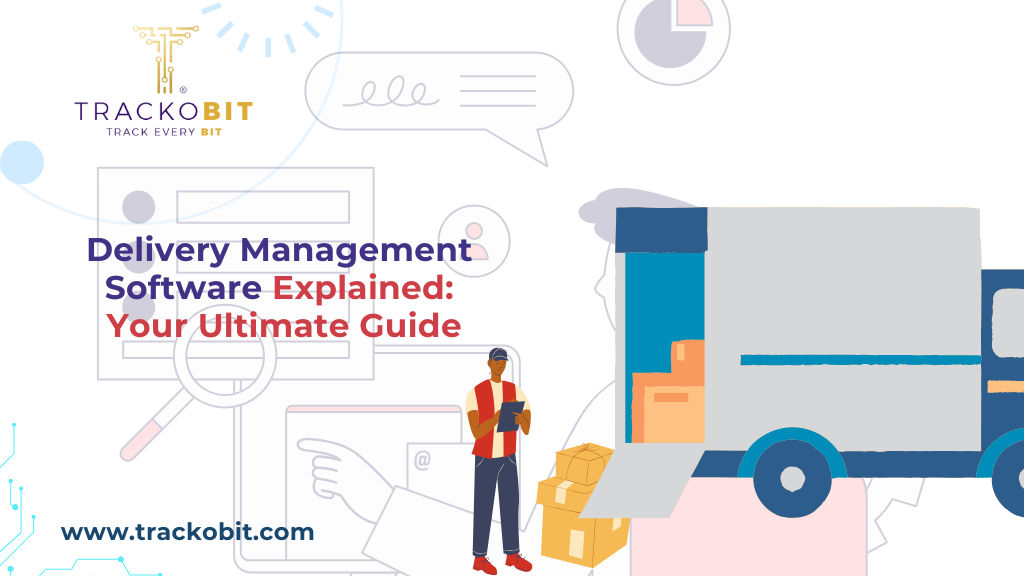In the modern world, the increase in online shopping has transformed how businesses operate. With more people ordering products & services online, businesses are facing immense pressure to ensure every order reaches customers on time. But meeting this demand isn’t just about having a capable delivery team. Yes, you read it right. It’s about ensuring that every step of the process is efficient and reliable. This is where technology, particularly delivery management software, comes into play.
If you’ve ever wondered how a delivery management system can streamline your business operations, this article is for you. So, keep reading this page.
What Is Delivery Management Software?
Let’s get into the basics first.
A custom delivery management software is a solution designed to automate the complex tasks associated with delivering orders to customers. For businesses dealing with multiple deliveries daily, managing orders, routing, tracking, and reporting manually can be overwhelming. But things become easier when you own a delivery management platform. It helps automate these tasks, making it easier to manage the entire delivery process.
Here’s how a good delivery management software typically works:
- Upload Orders via API: This eliminates the need for manual entry.
- Routing & Dispatching: The software then optimizes routes for delivery. Also, dispatchers can assign tasks to drivers efficiently.
- Order Tracking: With GPS features, you can track the real-time location of delivery vehicles.
- Analytical Reporting: Post-delivery, the software generates detailed reports on various aspects of the delivery process.
Moving ahead, let’s get into the features.
Features of a Comprehensive Delivery Management Software
To effectively manage deliveries, your software needs to be robust and feature-rich.
Here are some of the essential features you should look for in a comprehensive delivery management software:
- Route Optimization: The software should be capable of optimizing delivery routes to minimize time and fuel costs. This feature considers factors like traffic, road conditions, and delivery schedules. Overall, this ensures that your drivers take the most efficient routes.
- Dispatcher Platform: A centralized platform for dispatchers is crucial. It allows them to assign orders to drivers, monitor their progress, and make real-time adjustments if necessary. The top dispatch management software should also provide an overview of all ongoing deliveries to ensure smooth operations.
- Rider App: A decent app for delivery drivers is essential. This app should provide them with route details, order information, and the ability to communicate with the dispatcher. It should also allow them to update delivery statuses in real time.
- Real-Time Tracking: Real-time tracking is a must-have feature. It not only helps you monitor the location of your delivery vehicles but also provides customers with live updates on their order status. This GPS tracking software feature greatly enhances customer satisfaction.
- Digital PODs (Proof of Delivery): Digital proof of delivery is another important feature. It allows drivers to collect electronic signatures or photos as proof of delivery. This reduces the need for paper-based documentation and reduces the risk of disputes.
- Analytical Dashboards: Lastly, the software should offer analytical dashboards that provide insights into various aspects of the delivery process. These dashboards help businesses track key performance indicators (KPIs) and make data-driven decisions to improve efficiency.
You know the best part? You can get all these features together in our TrackoMile last-mile delivery software.
Benefits of Using Delivery Management Software for Businesses
Finally, let’s find out how benefits delivery management software can help your business reach heights.
First, the software boosts operational efficiency by automating key processes like order management, route optimization, and tracking. This automation reduces manual errors, speeds up the delivery process, and ensures that your deliveries are on time. With everything streamlined, your team can focus on more strategic tasks, like improving customer service and expanding your business.
Second, it improves cost-efficiency. Route optimization not only saves time but also reduces fuel consumption. This means you can complete more deliveries with the same resources, lowering your overall operational costs. Additionally, real-time tracking allows you to monitor vehicle usage and driver performance. This then helps you identify and eliminate inefficiencies.
Third, the software boosts customer satisfaction. Today’s customers expect real-time updates on their orders, and delivery management software delivers just that. By providing accurate ETAs and real-time tracking information, you keep your customers informed and happy. Plus, with features like digital PODs, you can ensure that every delivery is completed and documented. This reduces the likelihood of disputes.
Finally, delivery management software provides valuable data insights. With analytical dashboards, you can monitor every aspect of your delivery operations. This data helps you understand what’s working and what’s not, allowing you to make informed decisions.
Final Words
Ultimately, managing deliveries efficiently is crucial to meeting customer expectations and staying competitive. And you don’t have to worry when you know how to work with delivery management software. By incorporating such software into your operations, you can improve efficiency and ensure timely deliveries. Overall, this can help drive your business towards success.
So, what are you waiting for?




